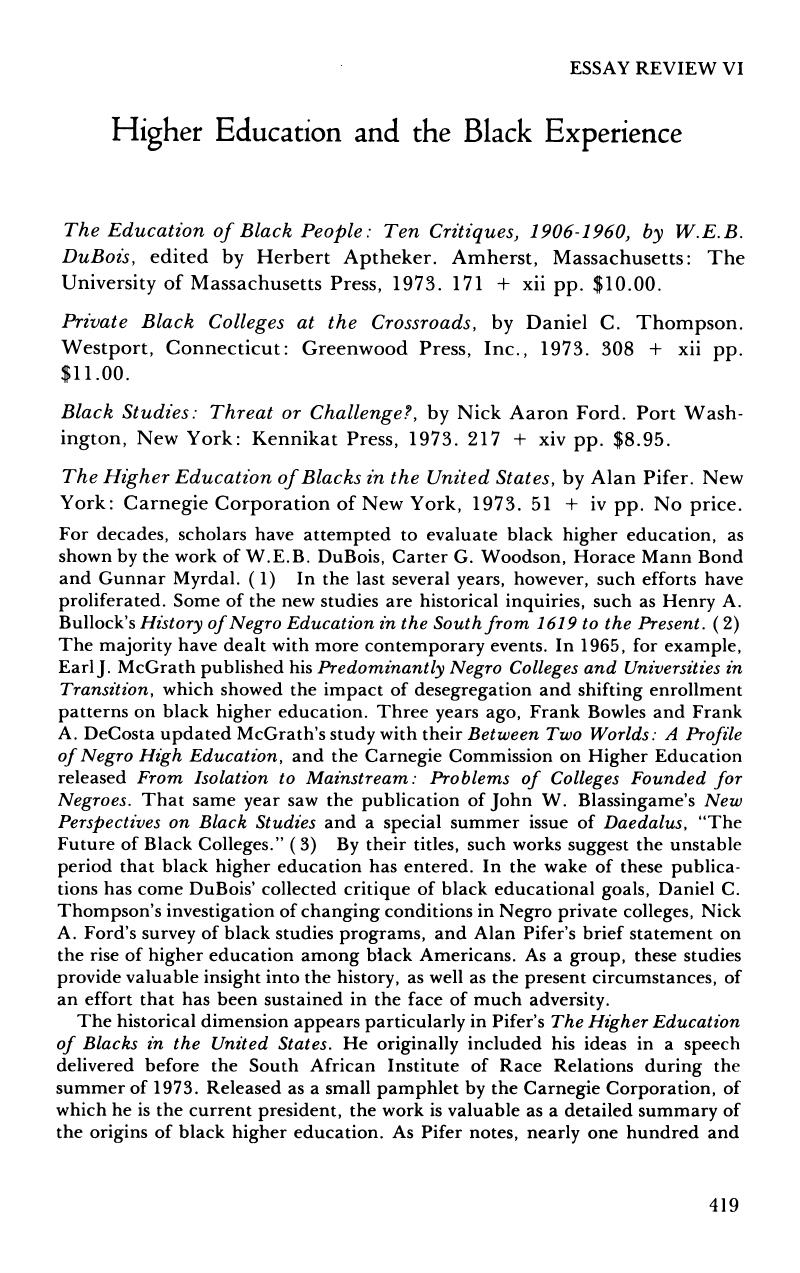No CrossRef data available.
Published online by Cambridge University Press: 24 February 2017

1. DuBois, W. E. B., ed., The College-Bred Negro (Atlanta, 1900), Woodson, Carter G., The Education of the Negro Prior to 1861 (Washington, D.C., 1915), Bond, Horace Mann, The Education of the Negro in the American Social Order (New York, 1934) and Myrdal, Gunnar, An American Dilemma (New York, 1944), Volume II.Google Scholar
2. (Cambridge, Massachusetts, 1968). Other important historical studies are Logan's, Rayford W. Howard University, the First Hundred Years, 1867–1967 (New York, 1968) and Bacote's, Clarence A. The Story of Atlanta University: A Century of Service, 1865–1965 (Atlanta, 1969). A recently published essay of importance is McPherson, James M., “White Liberals and Black Power in Negro Education, 1865–1915,” American Historical Review, 75 (June, 1970): 1357–86.Google Scholar
3. McGrath, Earl J., Predominantly Negro Colleges and Universities in Transition (New York, 1965); Bowles, Frank and DeCosta, Frank A., Between Two Worlds (New York, 1971); From Isolation to Mainstream: Problems of Colleges Founded for Negroes (New York, 1571); Blassingame, John W., New Perspectives on Black Studies (Urbana, Illinois, 1971); and Dedalus, 100 Summer, 1971).Google Scholar
4. Franklin, John H., From Slavery to Freedom (New York, 1974), pp. 178–79.Google Scholar
5. For a critical discussion of DuBois' changing social ideas see Fullinwider, S. P., The Mind and Mood of Black America (Homewood, Illinois, 1969), pp. 47–71.Google Scholar
6. Both Thompson and Ford hold views similar to those expressed by Sowell, Thomas in “The Plight of Black Students in the United States,” Daedalus, 105 (Spring, 1974): 179–96.Google Scholar